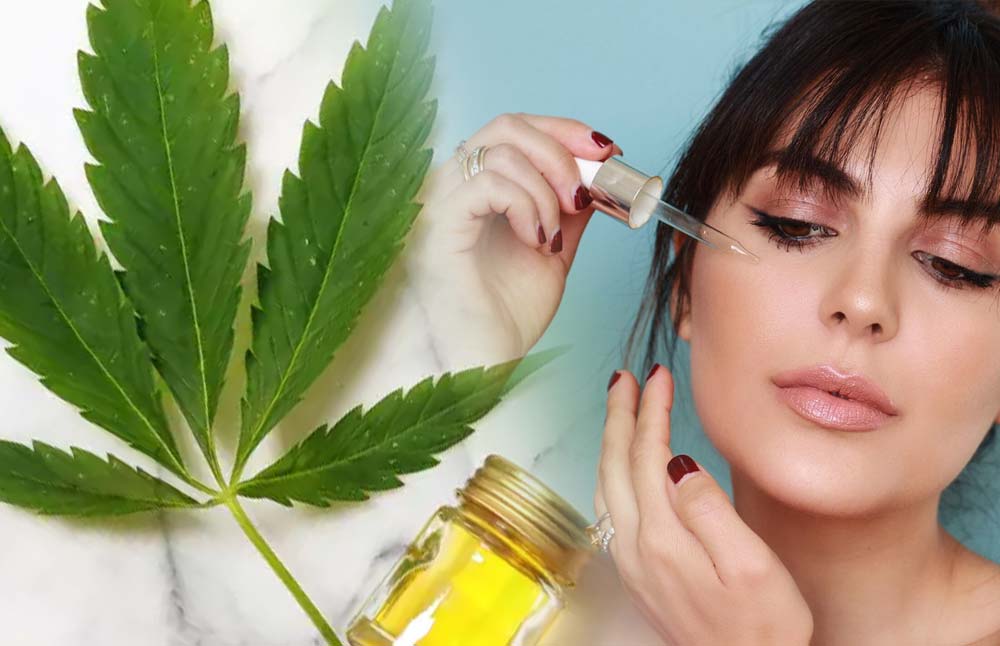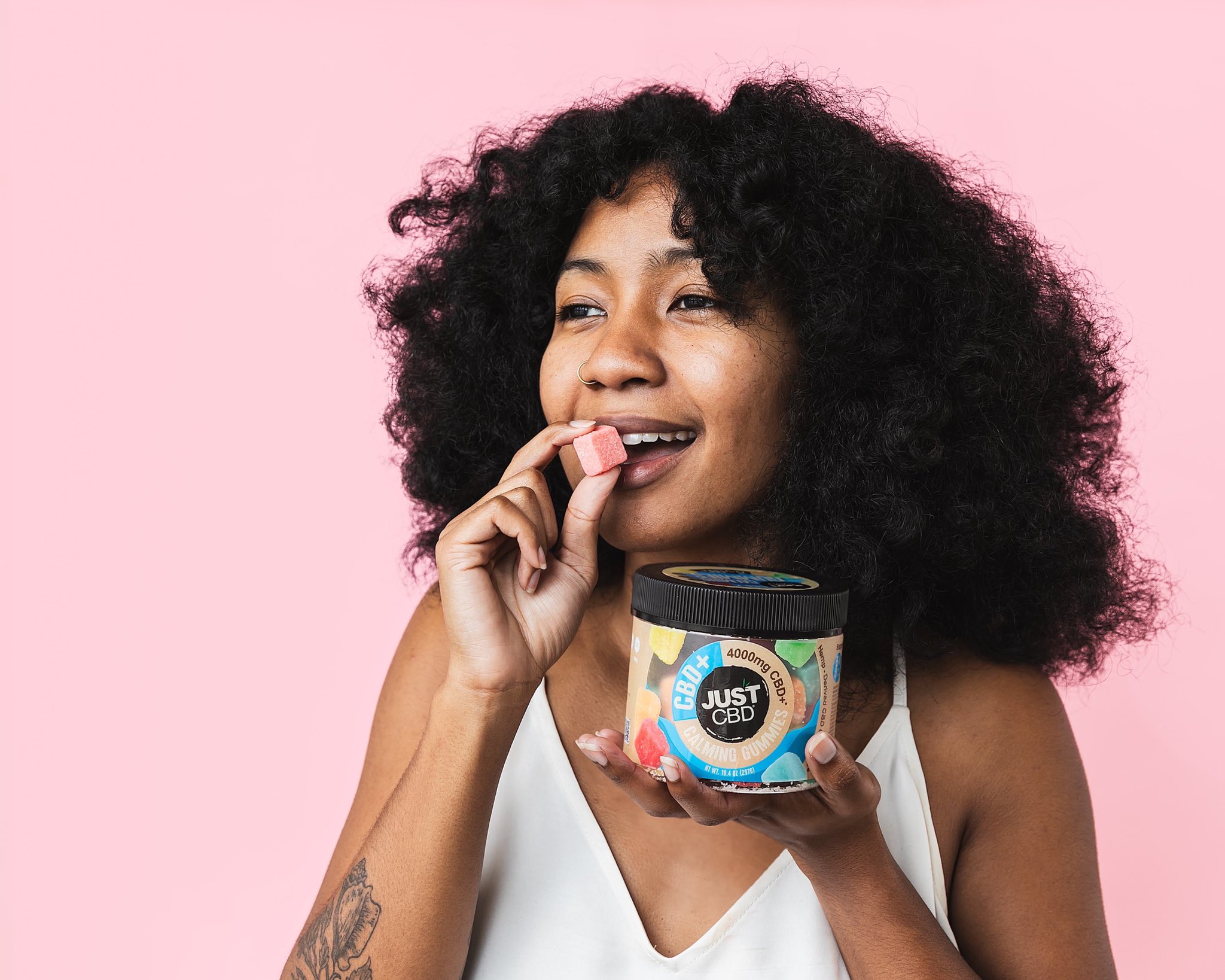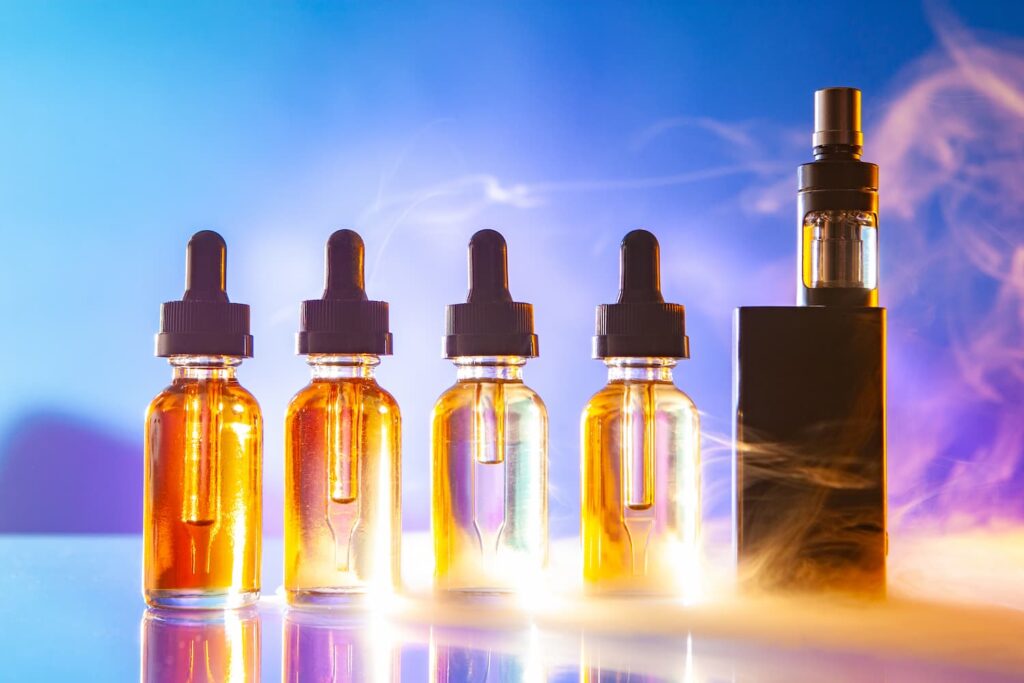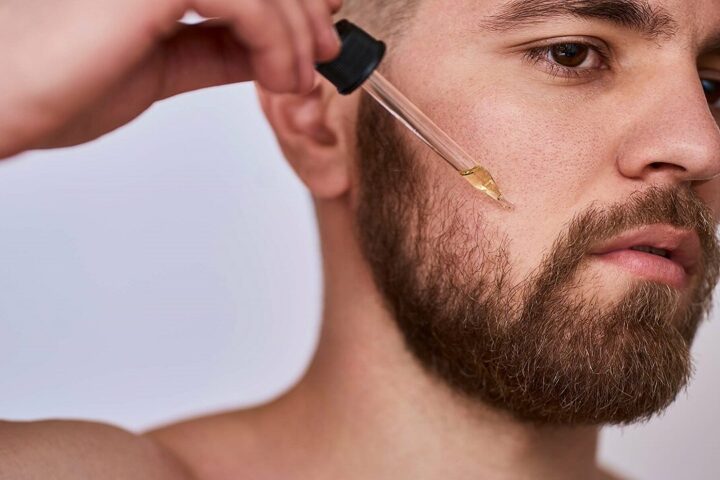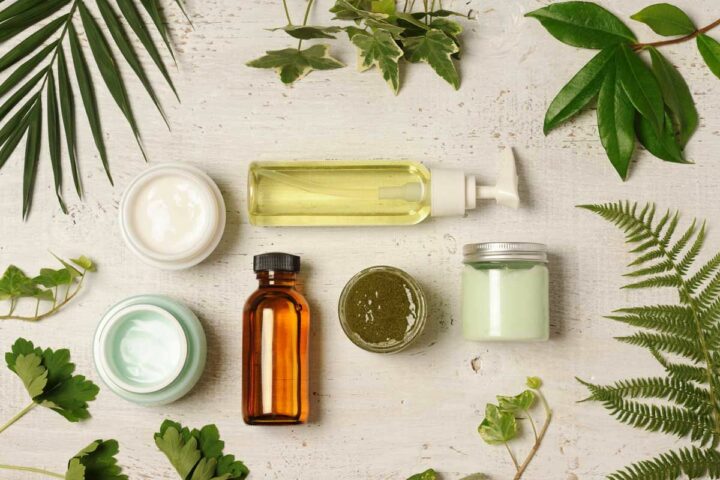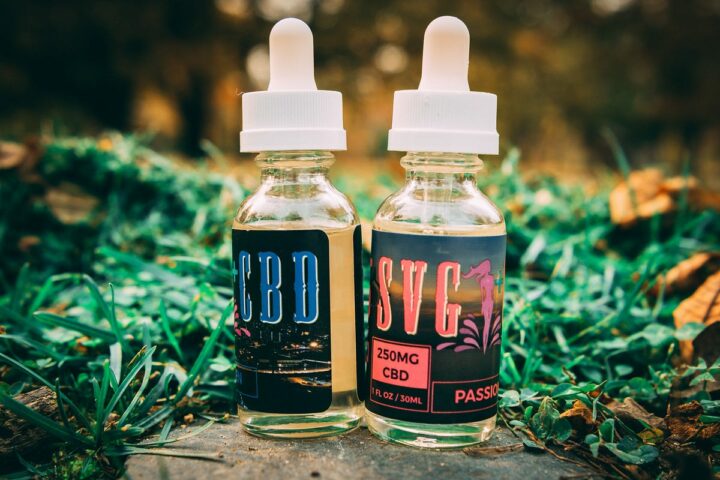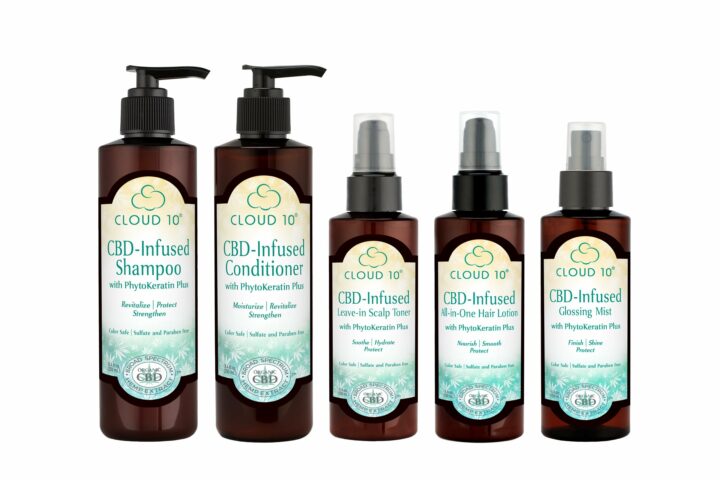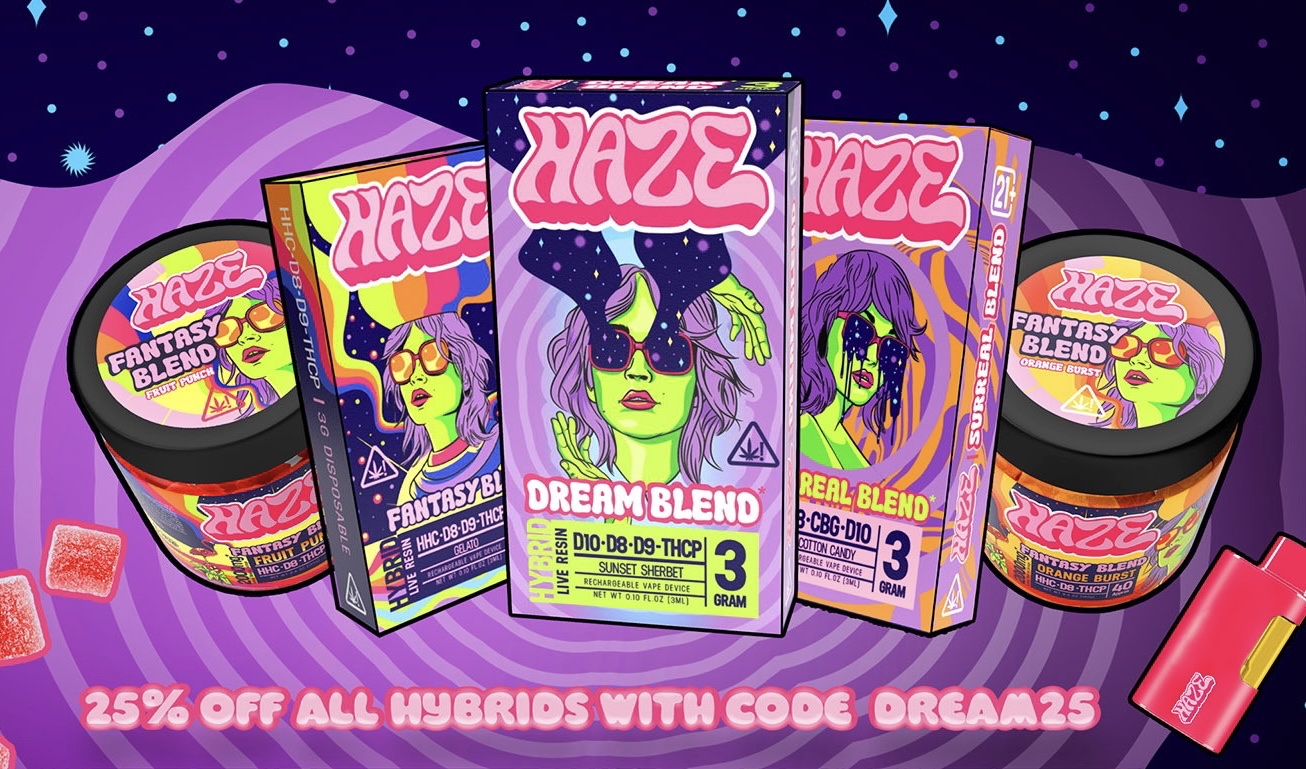CBD Skincare
What is CBD Skincare
CBD skincare refers to skincare products that are infused with CBD (cannabidiol), a non-psychoactive compound found in the cannabis plant. CBD skincare products have gained popularity in recent years due to their potential therapeutic benefits for the skin. Here is a comprehensive guide on what CBD skincare is and how it works.
How CBD works on the skin
CBD is known for its potential therapeutic benefits due to its interaction with the body’s endocannabinoid system (ECS). The ECS is a complex network of receptors and neurotransmitters that play a role in regulating various bodily functions, including skin health. When CBD is applied topically, it interacts with the ECS receptors in the skin, potentially reducing inflammation, soothing irritation, and promoting healthy cell growth.
Types of CBD skincare products
CBD skincare products come in a variety of forms, including:
- Moisturizers: CBD moisturizers are designed to hydrate and nourish the skin, potentially reducing dryness, flakiness, and fine lines.
- Serums: CBD serums are concentrated formulas that are designed to target specific skin concerns, such as acne, aging, or hyperpigmentation.
- Masks: CBD masks are designed to provide a concentrated dose of CBD and other beneficial ingredients to the skin, potentially reducing inflammation, soothing irritation, and promoting healthy cell growth.
- Balms and salves: CBD balms and salves are designed to provide targeted relief to areas of the skin that are dry, irritated, or inflamed.
- Cleansers: CBD cleansers are designed to remove dirt, oil, and makeup from the skin while potentially reducing inflammation and soothing irritation.
Potential benefits of CBD skincare
CBD skincare products have the potential to provide a range of benefits for the skin, including:
- Reducing inflammation: CBD has anti-inflammatory properties that can help to soothe redness, irritation, and inflammation in the skin.
- Fighting acne: CBD has antibacterial properties that can help to fight acne-causing bacteria and potentially reduce the appearance of breakouts.
- Moisturizing and hydrating: CBD is a powerful moisturizer that can help to hydrate and nourish the skin, potentially reducing dryness, flakiness, and fine lines.
- Promoting healthy cell growth: CBD has the potential to promote healthy cell growth, potentially reducing the appearance of fine lines and wrinkles and promoting a more youthful complexion.
- Soothing irritation: CBD has the potential to soothe irritation and sensitivity in the skin, making it an excellent choice for people with sensitive skin.
In conclusion,
CBD skincare products are designed to provide a range of potential therapeutic benefits for the skin. These products come in a variety of forms, including moisturizers, serums, masks, balms, salves, and cleansers. CBD skincare products have the potential to reduce inflammation, fight acne, moisturize and hydrate the skin, promote healthy cell growth, and soothe irritation. Consumers should be aware of the quality and purity of CBD skincare products when purchasing to ensure that they are purchasing safe and effective products.
How to use CBD Skincare
CBD skincare products have gained popularity in recent years due to their potential therapeutic benefits for the skin. Here is a comprehensive guide on how to use CBD skincare products to get the most benefit for your skin.
Determine your skin type and concerns
Before using any CBD skincare product, it is essential to determine your skin type and concerns. CBD skincare products come in a variety of forms, each designed to target specific skin concerns. For example, if you have oily skin, you may want to choose a CBD moisturizer that is oil-free, or if you have dry skin, you may want to choose a CBD serum that is formulated to provide intense hydration.
Cleanse your skin
Before applying any CBD skincare product, it is important to start with a clean face. Use a gentle cleanser to remove any dirt, oil, or makeup from your skin. This will ensure that the CBD product can penetrate the skin effectively and provide the most benefit.
Apply the CBD skincare product
Once your skin is clean, apply the CBD skincare product to your face, neck, and any other areas of your skin that you wish to treat. Follow the instructions on the packaging carefully, as the application method may vary depending on the product. For example, some CBD skincare products may require you to massage them into your skin, while others may require you to leave them on for a certain amount of time.
Use regularly
To get the most benefit from CBD skincare products, it is important to use them regularly. Incorporate the product into your daily skincare routine and use it as directed. It may take some time to see the full benefits of CBD skincare products, so be patient and consistent with your use.
Be cautious with dosage
When using CBD skincare products, it is important to be cautious with the dosage. Start with a small amount of the product and gradually increase the dosage as needed. If you experience any adverse reactions, such as redness or irritation, stop using the product immediately and consult with a healthcare professional.
Store properly
To ensure that your CBD skincare products remain effective, it is important to store them properly. Store the products in a cool, dry place, away from direct sunlight and heat. This will help to preserve the potency of the CBD and ensure that the product lasts as long as possible.
In conclusion,
CBD skincare products can provide a range of potential therapeutic benefits for the skin. To get the most benefit from these products, it is important to determine your skin type and concerns, cleanse your skin before use, apply the product as directed, use regularly, be cautious with dosage, and store the products properly. With these tips in mind, you can incorporate CBD skincare products into your daily routine and potentially see improvements in the health and appearance of your skin.
CBD Skincare Dosing
When it comes to CBD skincare dosing, there is no one-size-fits-all approach. The ideal dosage of CBD skincare products may vary depending on various factors such as the individual’s skin type, the severity of the skin condition, and the concentration of CBD in the product. However, here are some general guidelines to help you determine the appropriate CBD skincare dosing:
Start with a low dosage
When using CBD skincare products for the first time, start with a low dosage and gradually increase the dosage as needed. This will help you to determine how your skin reacts to CBD and find the optimal dosage for your needs. Typically, starting with a dosage of 5-10mg of CBD per application is recommended.
Check the concentration of CBD in the product
The concentration of CBD in the product will also affect the dosage. It is important to read the label and determine the concentration of CBD per serving or application. For example, a product that contains 500mg of CBD in a 30ml bottle will have a concentration of approximately 16mg of CBD per ml.
Consider the severity of your skin condition
If you are using CBD skincare products to treat a specific skin condition, such as acne or eczema, you may need a higher dosage to see results. Consult with a healthcare professional or a licensed CBD practitioner to determine the appropriate dosage for your specific skin condition.
Follow the manufacturer’s instructions
It is important to follow the manufacturer’s instructions when using CBD skincare products. Some products may have specific dosing instructions based on their formulation and intended use. Follow these instructions carefully to ensure that you are using the product safely and effectively.
Be consistent with your dosing
To see the full potential benefits of CBD skincare products, it is important to be consistent with your dosing. Incorporate the product into your daily skincare routine and use it as directed. It may take some time to see the full benefits of CBD skincare products, so be patient and consistent with your use.
Monitor your response
As you adjust your dosage, it is important to monitor your response. Pay attention to any changes in your skin condition or any adverse reactions, such as redness or irritation. If you experience any adverse reactions, stop using the product immediately and consult with a healthcare professional.
In conclusion,
CBD skincare dosing is a personal decision that should be based on your individual needs and skin type. Start with a low dosage, check the concentration of CBD in the product, consider the severity of your skin condition, follow the manufacturer’s instructions, be consistent with your dosing, and monitor your response. With these tips in mind, you can determine the appropriate CBD skincare dosing for your needs and potentially see improvements in the health and appearance of your skin.
Benefits of CBD Skincare
CBD skincare has been gaining popularity in recent years due to the potential benefits it may provide for the skin. Here are some of the potential benefits of using CBD skincare products:
Anti-inflammatory properties
CBD has anti-inflammatory properties that may help reduce inflammation in the skin. This can be particularly helpful for individuals with acne-prone or sensitive skin. By reducing inflammation, CBD may also help to calm irritated skin and promote a more even skin tone.
Moisturizing properties
CBD skincare products often contain other natural ingredients, such as coconut oil or shea butter, which are known for their moisturizing properties. These ingredients work together with CBD to hydrate and nourish the skin, leaving it feeling soft and supple.
Antioxidant properties
CBD is also known for its antioxidant properties. Antioxidants help to protect the skin from free radicals, which can cause damage and premature aging. By incorporating CBD into your skincare routine, you may help to protect your skin from environmental stressors and promote healthy, youthful-looking skin.
Potential for treating skin conditions
CBD may have potential for treating a variety of skin conditions, such as acne, eczema, and psoriasis. Its anti-inflammatory properties may help to reduce redness and inflammation associated with these conditions, while its moisturizing properties may help to soothe dry, itchy skin.
Calming effects
CBD may also have calming effects on the skin. It may help to reduce stress and promote relaxation, which can be helpful for individuals with skin conditions exacerbated by stress, such as acne or eczema.
Non-psychoactive
CBD is non-psychoactive, which means it does not produce the “high” associated with marijuana use. This makes it a safe and effective option for individuals who want to experience the potential benefits of cannabis without the psychoactive effects.
In conclusion,
CBD skincare may offer a range of potential benefits for the skin, including anti-inflammatory, moisturizing, and antioxidant properties, as well as potential for treating various skin conditions and promoting relaxation. As with any skincare product, it is important to do your research and choose high-quality CBD skincare products from reputable brands to ensure safety and efficacy.
Legality of CBD in the UK
CBD, or cannabidiol, is a compound derived from the hemp plant that is used in a variety of products, including skincare, food supplements, and more. Here is a comprehensive guide on the legality of CBD in the UK:
CBD is legal in the UK if it meets certain criteria
CBD is legal in the UK if it meets certain criteria. The CBD product must come from an industrial hemp strain that is EU-approved and contains less than 0.2% THC (the psychoactive compound found in marijuana). Additionally, the product must not make any medical claims, as CBD is not yet approved as a medicine in the UK.
CBD products must be sold as a food supplement or topical product
CBD products must be sold as a food supplement or topical product, and cannot be marketed as a medicine or used to diagnose, treat, or prevent any disease. This means that companies cannot claim that CBD products can cure or treat any medical conditions.
CBD is regulated by the Food Standards Agency (FSA)
CBD is regulated by the Food Standards Agency (FSA) in the UK. The FSA has set out guidance for businesses selling CBD products, including requirements for labeling and safety. Companies selling CBD products must comply with these regulations to ensure their products are legal.
THC is illegal in the UK
While CBD is legal in the UK, THC is illegal. THC is a controlled substance under the Misuse of Drugs Act 1971, and possessing or supplying it can result in legal consequences. This means that CBD products must contain less than 0.2% THC to be legal.
CBD products may be subject to inspection and testing
CBD products may be subject to inspection and testing by the authorities to ensure they meet legal requirements. Companies must provide documentation to prove that their products meet safety and legal standards.
In conclusion,
CBD is legal in the UK if it meets certain criteria, including containing less than 0.2% THC and being sold as a food supplement or topical product. It is important to choose high-quality CBD products from reputable brands that comply with FSA regulations to ensure safety and legality. As with any supplement, it is recommended to speak with a healthcare provider before using CBD products, especially if you have any medical conditions or are taking medications.
FAQs-CBD Skincare
What does CBD do for skin?
CBD, short for cannabidiol, has gained popularity for its potential benefits in skincare. When applied topically, CBD interacts with the endocannabinoid receptors in the skin, which are part of the body’s natural regulatory system. CBD is known for its anti-inflammatory and antioxidant properties, which can help soothe and calm the skin. It may help reduce redness, irritation, and signs of inflammation. CBD is also believed to have moisturizing effects, helping to maintain skin hydration. Additionally, CBD has been reported to have potential benefits for acne-prone skin, as it may help regulate sebum production and inhibit the growth of acne-causing bacteria. While scientific research on CBD’s effects on the skin is still emerging, many individuals have reported positive results when incorporating CBD-infused skincare products into their routines. It is important to note that individual experiences may vary, and it’s advisable to choose reputable CBD products and consult with a dermatologist or healthcare professional before incorporating CBD into your skincare routine.
Is CBD really good for skincare?
CBD has gained attention for its potential benefits in skincare, but its effectiveness and suitability can vary depending on individual needs and preferences. CBD is known for its anti-inflammatory properties, which may help reduce redness and inflammation in the skin. It also has antioxidant properties that can help protect the skin from damage caused by free radicals. Additionally, CBD is believed to have moisturizing effects and can help promote skin hydration. Many individuals have reported positive experiences with CBD-infused skincare products, noting improvements in skin texture, soothing of irritation, and overall skin health. However, it’s important to note that scientific research on CBD in skincare is still limited, and the quality and formulation of CBD products can vary. It’s advisable to choose reputable brands, consult with a dermatologist or healthcare professional, and perform patch tests before incorporating CBD into your skincare routine to ensure it is appropriate for your specific skin concerns.
Is CBD good for wrinkles?
CBD may have potential benefits for wrinkles, although scientific research is still limited. CBD is known for its antioxidant properties, which can help neutralize free radicals and reduce oxidative stress, a contributing factor to skin aging. Additionally, CBD’s anti-inflammatory properties may help soothe the skin and reduce inflammation, which can contribute to the formation of wrinkles. CBD also has moisturizing effects, promoting hydration and potentially improving the appearance of fine lines and wrinkles. However, it’s important to note that individual experiences may vary, and the effectiveness of CBD for wrinkles may depend on factors such as product quality, formulation, and concentration. Consulting with a dermatologist or healthcare professional can provide personalized advice and help determine the most suitable approach for addressing wrinkles.
How long does CBD take to work on skin?
The time it takes for CBD to work on the skin can vary depending on various factors, including the specific product used, the concentration of CBD, and individual skin characteristics. When applied topically, CBD is generally absorbed relatively quickly into the skin. Some people may notice immediate effects, such as soothing and moisturizing properties, shortly after application. However, for more noticeable and long-term benefits, it may take consistent and regular use of CBD-infused skincare products over a period of time. It’s important to note that individual experiences can vary, and it may take some experimentation to find the right CBD product and routine that works best for your skin. Patience and consistency are key when using CBD for skincare, and it’s advisable to consult with a dermatologist or healthcare professional for personalized guidance.
How much CBD should a beginner start with?
When starting with CBD, it’s generally recommended for beginners to begin with a low dose and gradually increase as needed. The optimal CBD dosage can vary depending on individual factors such as body weight, metabolism, and the specific condition being addressed. It’s advisable to start with a CBD product that provides a lower concentration, typically around 5-10 milligrams per serving. This allows you to gauge your body’s response and gradually adjust the dosage if necessary. It’s important to note that CBD affects people differently, and finding the right dosage may require some trial and error. It’s always recommended to consult with a healthcare professional or consider the guidance provided by the product manufacturer for specific dosage recommendations based on your individual needs.
Can CBD make your skin clear?
CBD may potentially contribute to clearer skin, although individual experiences can vary. CBD’s anti-inflammatory properties can help reduce redness, irritation, and inflammation, which are common factors contributing to skin issues such as acne. It may also help regulate sebum production, potentially reducing excess oiliness that can lead to clogged pores and breakouts. Additionally, CBD’s antioxidant properties may help protect the skin from damage caused by free radicals, promoting overall skin health. However, it’s important to note that CBD is not a magical solution, and results may depend on various factors such as product quality, concentration, and individual skin characteristics. Consistent and regular use of CBD-infused skincare products, along with proper skincare practices, may help improve skin clarity over time. Consulting with a dermatologist or healthcare professional can provide personalized advice and guidance on incorporating CBD into your skincare routine.
How often can you apply CBD to skin?
The frequency of applying CBD to the skin can vary depending on individual needs and the specific product being used. In general, CBD-infused skincare products can be applied once or twice daily, or as directed by the product instructions or a healthcare professional. It’s important to follow the recommended dosage and usage guidelines provided by the manufacturer. Some people may find that applying CBD more frequently provides better results, while others may prefer using it less frequently. It’s advisable to start with a lower frequency and assess how your skin responds. If needed, you can gradually increase the frequency based on your skin’s tolerance and desired results. It’s always a good idea to consult with a dermatologist or healthcare professional for personalized advice on the optimal frequency of CBD application for your specific skin concerns.
Is it OK to use CBD cream everyday?
Using CBD cream every day is generally considered safe and well-tolerated for most individuals. CBD creams are designed for topical use and are often applied to specific areas of the skin for targeted relief. The frequency of application can depend on personal preference and the specific needs of the individual. Many people find benefit in using CBD cream daily to address concerns such as inflammation, soreness, or skin conditions. However, it’s important to follow the instructions provided by the product manufacturer and consult with a healthcare professional if you have any specific concerns or underlying medical conditions. They can provide guidance on the appropriate dosage and frequency of CBD cream usage based on your individual circumstances.
Does CBD cream get into bloodstream?
When applied topically, CBD cream primarily interacts with the receptors in the skin and underlying tissues, targeting localized areas. While some absorption of CBD into the bloodstream can occur through the skin, the amount is generally considered minimal. The skin acts as a barrier and is designed to prevent large amounts of substances from entering the bloodstream. However, factors such as the concentration of CBD in the cream, the duration of application, and the integrity of the skin can influence the extent of absorption. It’s important to note that the effects of CBD when applied topically are primarily localized to the area of application, providing targeted relief. If you are seeking systemic effects, such as those associated with oral or sublingual CBD products, it is recommended to explore those delivery methods instead. As always, it is advisable to consult with a healthcare professional for personalized advice and information regarding the use of CBD creams and their potential effects on the body.
How well does skin absorb CBD?
The skin has the ability to absorb CBD, although the extent of absorption can vary depending on several factors. CBD molecules are relatively large, and the skin acts as a barrier that limits their penetration into the deeper layers. However, the skin does contain cannabinoid receptors, and studies suggest that CBD can penetrate the uppermost layer of the skin (epidermis) and interact with these receptors locally. Factors such as the concentration and formulation of the CBD product, the condition of the skin barrier, and the duration of application can influence the absorption rate. Enhancers or technologies like nanoemulsion may also improve CBD absorption. While CBD can be absorbed to some extent, it’s important to note that the effects are primarily localized to the area of application, providing targeted relief. For systemic effects, other delivery methods like oral or sublingual ingestion of CBD may be more suitable. Consulting with a healthcare professional can provide more specific guidance on CBD absorption and the most appropriate usage for your needs.
Can I rub CBD on my face?
Yes, it is generally safe to apply CBD topically to your face. CBD-infused creams, lotions, serums, or oils can be gently massaged onto the skin to address various skin concerns. CBD has been reported to have potential benefits for the skin, including its anti-inflammatory, antioxidant, and moisturizing properties. When applied to the face, CBD may help reduce redness, soothe irritation, and promote overall skin health. It’s important to choose high-quality CBD skincare products and perform a patch test before applying them to your entire face to ensure you do not have any adverse reactions. If you have any specific skin concerns or underlying medical conditions, it’s advisable to consult with a dermatologist or healthcare professional for personalized advice on incorporating CBD into your skincare routine.
Does topical CBD affect the liver?
When used topically, CBD is generally not expected to have a significant impact on the liver. Topical application of CBD creams, lotions, or oils primarily targets the skin and does not involve systemic absorption into the bloodstream at significant levels. As a result, the CBD molecules are unlikely to reach the liver in quantities that could cause any noticeable effects. However, it’s important to note that individual responses to CBD can vary, and some people may experience mild skin irritation or allergic reactions. If you have pre-existing liver conditions or concerns, it’s advisable to consult with a healthcare professional before using any CBD products, including topicals, to ensure it is safe and appropriate for you. Additionally, if you are using CBD products orally or sublingually, there is the potential for CBD to interact with liver enzymes responsible for metabolizing certain medications. It’s crucial to discuss any concerns with your healthcare provider to ensure the safe and appropriate use of CBD in relation to your liver health.
What are the negatives of CBD cream?
While CBD cream is generally well-tolerated, there are a few potential negatives to consider. Some individuals may experience mild skin irritation or allergic reactions to CBD or other ingredients in the cream. It’s advisable to perform a patch test before applying the cream to a larger area of skin. CBD products can vary in quality, and there is a risk of encountering low-quality or mislabeled products that may contain harmful substances or inadequate CBD concentrations. It’s important to choose reputable brands and ensure third-party lab testing for quality and purity. CBD cream is primarily intended for topical use, so it may not provide the same systemic effects as other CBD delivery methods. If you are seeking more widespread or internal effects, other forms of CBD consumption may be more suitable. Lastly, it’s important to note that scientific research on the long-term effects of CBD is still limited, and it’s advisable to consult with a healthcare professional before incorporating CBD cream or any other CBD products into your routine, especially if you have any underlying medical conditions or are taking medications.
Does CBD cream tighten skin?
CBD cream is not specifically designed to tighten the skin, but it may contribute to the overall appearance and health of the skin. CBD has anti-inflammatory and antioxidant properties, which can help soothe and calm the skin, reduce redness, and protect against damage caused by free radicals. By promoting healthier skin, CBD cream may indirectly improve the skin’s elasticity and firmness. Additionally, CBD’s moisturizing effects can help hydrate the skin, which may give a temporary plumping effect and improve the appearance of fine lines. However, it’s important to note that individual results may vary, and CBD cream may not provide significant or long-lasting tightening effects. If you are specifically seeking skin tightening, it’s advisable to explore other skincare treatments or consult with a dermatologist for personalized recommendations.
Is CBD good for Crepey skin?
CBD may have potential benefits for crepey skin, although scientific research specific to this condition is limited. Crepey skin refers to thin, wrinkled, and fragile skin that resembles crepe paper. CBD’s anti-inflammatory and antioxidant properties may help reduce inflammation, protect against free radicals, and promote overall skin health. Additionally, CBD’s moisturizing effects can help hydrate the skin, which may temporarily improve the appearance of crepiness. However, it’s important to manage expectations as CBD may not provide dramatic or long-lasting results for crepey skin. It’s advisable to combine CBD skincare products with other treatments recommended by a dermatologist or healthcare professional for a comprehensive approach to addressing crepey skin. Individual experiences may vary, and consulting with a healthcare professional can provide personalized advice based on your specific skin concerns.
- Apple Gelato Weed Strain Information - May 2, 2024
- Sweet Tart Weed Strain Information - April 27, 2024
- Expert Guide to White Fire OG (WiFi OG) Weed Strain Information - April 20, 2024
